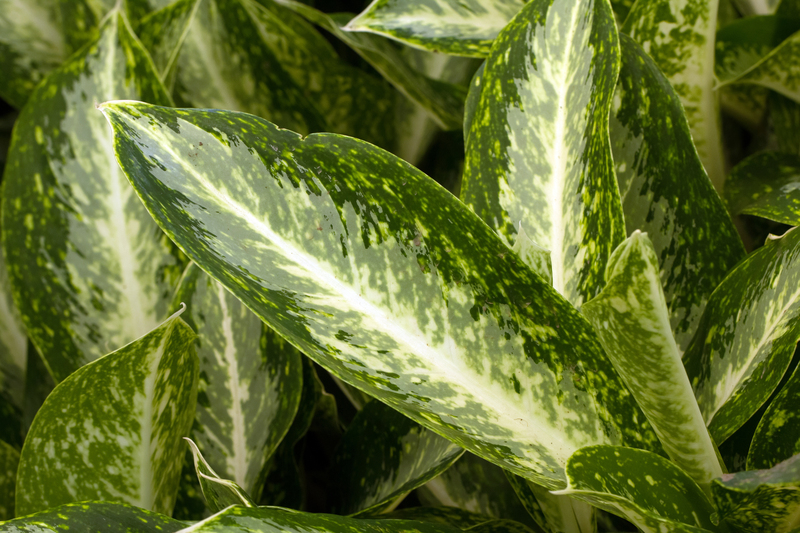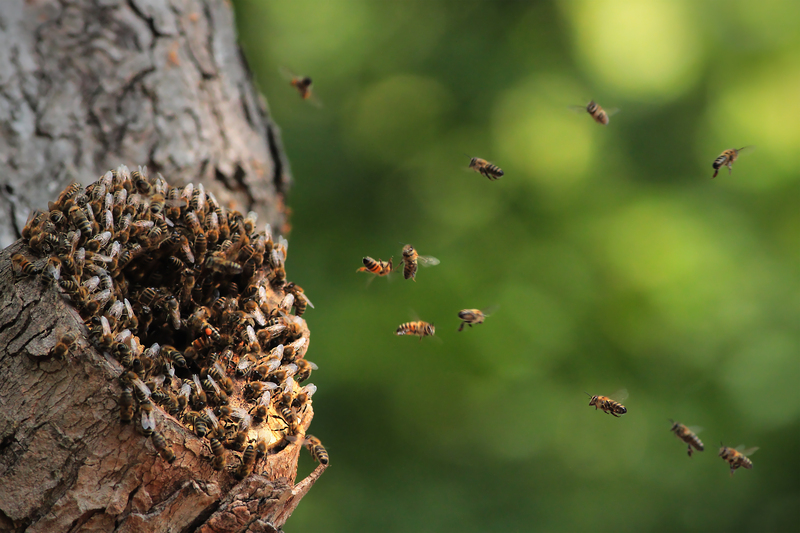Mastering Herb Garden Cultivation for Beginners
Posted on 14/08/2025
Mastering Herb Garden Cultivation for Beginners
Herb gardening stands as an inviting and rewarding journey, especially for beginners. Whether your vision is to flavor your home-cooked meals, create healing remedies, or simply enjoy lush green aromatics by your windowsill, starting your own herb garden cultivates not just plants, but a deeper connection to nature and well-being. This comprehensive guide will walk you step by step, helping you master herb garden cultivation from the ground up.

Why Start an Herb Garden?
- Fresh Flavors: Nothing beats the taste and fragrance of freshly picked herbs in your kitchen.
- Easy to Start: Most herbs are robust, forgiving, and ideal for first-time gardeners.
- Low Maintenance: Herbs require little space and minimal upkeep.
- Cost-Effective: Growing your own herbs can save money over time.
- Health Benefits: Many herbs possess medicinal qualities that promote wellness.
Understanding Herb Garden Basics
What is an Herb Garden?
An herb garden is a curated collection of culinary, medicinal, or decorative herbs grown for personal use. These versatile gardens thrive on windowsills, balconies, raised beds, and traditional plots alike.
Key Factors for Herb Gardening Success
- *Sunlight:* Most herbs thrive with 6-8 hours of direct sunlight per day.
- *Soil:* Herbs prefer well-draining, nutrient-rich soil.
- *Water: While herbs need regular watering, overwatering leads to root rot. Most prefer soil that dries slightly between waterings.
- *Air Circulation:* Good airflow around your herbs deters disease.
- *Space: Give each herb adequate space to mature and spread.
Choosing Your Herbs: The Best Picks for Beginners
Not every herb is created equal in ease of growth or maintenance. For beginners, it's wise to select resilient and productive varieties.
Top 10 Easy-to-Grow Herbs for Beginners
- Basil: A popular herb for Italian dishes, basil flourishes in warm, sunny locations.
- Mint: Incredibly hardy and fast-growing, but best confined to pots as it can spread aggressively.
- Chives: Delivers a mild onion flavor and grows well in pots and garden beds.
- Parsley: Slow to start but robust once established.
- Cilantro (Coriander): Best grown from seed and prefers cooler periods.
- Thyme: Requires little maintenance and adds fragrance and taste.
- Oregano: Thrives in poor soils; perfect for Mediterranean recipes.
- Rosemary: Loves hot, dry climates and is drought tolerant.
- Sage: Pairs beautifully with poultry; semi-evergreen and hardy.
- Dill: Grows quickly from seed and is excellent for pickling and salads.
Planning Your Herb Garden Layout
Outdoor Herb Gardens
When cultivating herbs outdoors, choose a section of your yard that receives ample sunlight. Raised beds and traditional row gardens both work well. Prioritize herbs with similar light and water needs next to each other. Use stepping stones or paths to avoid compacting soil.
Container Herb Gardens
For urban gardeners or those short on space, containers provide flexibility. Ensure pots have proper drainage holes and use good quality potting mix. Group smaller pots or choose one large planter to create a lush tapestry of flavors and scents on your patio, deck, or balcony.
Windowsill or Indoor Herb Gardens
Indoor herb gardening is perfect for beginners seeking convenience and year-round access. Place containers on bright, south-facing windowsills and avoid cold drafts. Rotating containers every few days ensures even growth.
Planting: Seeds vs. Transplants
Seeds
- Often more affordable and offer a larger variety of cultivars.
- Some herbs, like dill and cilantro, perform best when sown directly in their final location.
- Patience required - germination times vary between species.
Transplants (Seedlings)
- Provide a "head start," especially for slow-germinating or heat-loving herbs like basil and rosemary.
- Easier for beginners to manage spacing and minimize initial losses.
- Often available at local nurseries and garden stores.
Step-by-Step Herb Garden Cultivation for Beginners
- Choose a Location: Select a sunny spot outdoors or a well-lit area indoors.
- Prepare the Soil: Use high-quality, well-draining soil. Mix in compost or organic matter to nourish your herbs.
- Pick Your Plants: Decide which herbs suit your taste, climate, and garden layout.
- Plant Seeds or Seedlings: Follow spacing instructions on packets or labels. Press seeds lightly into the soil and cover with a thin layer.
- Water Gently: Keep the soil moist but not soggy until seedlings establish. Indoor herbs may need less water than outdoor plots.
- Mulch (Optional): Apply a thin layer of straw or bark mulch to retain moisture and deter weeds outdoors.
- Label Each Herb: Use tags or decorative markers to remember what's growing where.
- Maintain Regular Care: Water when the top inch of soil feels dry. Pinch off flower buds to prolong leaf production.
- Harvest Thoughtfully: Snip leaves regularly to encourage bushier growth. Never remove more than one-third of the plant at a time.
Essential Herb Garden Care Tips
Watering
Overwatering is a beginner's most common mistake. Most herbs fare best with moderate, infrequent watering, especially Mediterranean species like rosemary, oregano, and thyme. Always check the soil before adding water; allow it to dry slightly between sessions.
Fertilization
Avoid over-fertilizing! Excess nutrients can lead to less flavorful herbs. Apply a balanced, slow-release organic fertilizer in the early spring or incorporate compost before planting. Container gardens may need a boost with a mild liquid organic fertilizer every month.
Pruning and Harvesting
Regular harvesting is crucial. Use sharp scissors or garden shears to snip herbs in the morning, when oils are most concentrated. Pinch off flower heads (called "bolting") on basil, cilantro, and parsley to focus energy on leaf growth. For perennial herbs, trim back woody stems in late winter or early spring.
Pest and Disease Management
Herbs are naturally pest-resistant, but still monitor for aphids, spider mites, and fungal infections. Encourage beneficial insects, use neem oil or insecticidal soap for minor infestations, and ensure good airflow to prevent mildew.
Common Mistakes in Herb Gardening for Beginners
- Overcrowding plants, which reduces airflow and increases disease risk.
- Using garden soil in containers instead of lightweight, sterile potting mixes.
- Neglecting sunlight needs - most herbs need full sun!
- Over- or under-watering, both of which can stunt growth.
- Ignoring regular harvesting or pruning, resulting in less vigorous plants.
Harvesting and Storing Your Homegrown Herbs
How and When to Harvest
- Pick young leaves regularly for the best flavor. Morning harvest is ideal.
- Never cut more than one-third of the plant at once.
- Encourage bushiness by harvesting above a leaf pair on stemmed herbs.
Storing Fresh Herbs
- Short-Term: Place stems in a jar of water on the kitchen counter or refrigerate between damp paper towels.
- Drying: Bundle stems and hang upside down in a warm, dry area away from sunlight for several weeks.
- Freezing: Chop herbs and store in airtight containers or freeze with water in ice cube trays.
Beyond the Basics: Expanding Your Herb Garden Mastery
Companion Planting
Some herbs enhance the growth of others by deterring pests or improving taste. For example, basil planted near tomatoes can boost both crops' yields and repel insects.
Perennials vs. Annuals
Annual herbs complete their lifecycle in one season (e.g., basil, cilantro, dill). Perennial herbs (e.g., thyme, rosemary, sage) keep growing year after year, adding enduring flavor and fragrance to your garden.
Wildlife and Pollinator Attraction
Blooms from chives, oregano, and thyme attract bees and butterflies, supporting healthy local ecosystems.
Advanced Techniques
- Hydroponic systems: Allow soilless cultivation of herbs indoors for year-round production.
- Vertical gardening: Maximizes small spaces by growing herbs upward on walls or trellises.
- Propagation: Many herbs root easily from stem cuttings, allowing you to multiply favorite varieties.

Frequently Asked Questions About Herb Gardening
- Can I grow herbs indoors year-round?
Absolutely! With enough light (preferably from a south-facing window or supplemental LED grow lights), you can harvest fresh herbs anytime. - How often should I water my herbs?
Water when the top inch of soil is dry. Overwatering is more harmful than underwatering. - What's the easiest herb to grow for beginners?
Mint is nearly foolproof. However, basil, chives, and oregano are also excellent beginner choices. - What do I do if my herbs bolt (flower)?
Pinch off flowers to extend leaf harvests, especially on basil, cilantro, and parsley. - Can I plant herbs with vegetables?
Yes! Herbs make great companion plants for vegetables, benefiting both crops.
Conclusion: Start Your Herb Garden Journey Today!
Mastering herb garden cultivation for beginners is a fulfilling hobby that pays dividends for years to come. With robust, aromatic leaves, vibrant greenery, and fresh flavors, your home-grown herbs will elevate every meal and daily moment. Start small, learn as you grow, and above all--enjoy the process of cultivating your own living spice rack!
If you're inspired to get started, pick a few of your favorite herbs, gather some pots and soil, and plant your first seeds today. Before long, you'll develop the "green thumb" that transforms kitchen windows, patios, and garden beds into lush, flavorful, and healthful spaces.
Happy gardening--and happy growing!
Latest Posts
Evergreen Climbers for Shade: Reviving Gloomy Spots
Creating a Dog-Friendly Garden Sanctuary
Exploring the Benefits of Container Gardening
Mastering Your Garden: Top 3 Tips for Effective Weed Control

